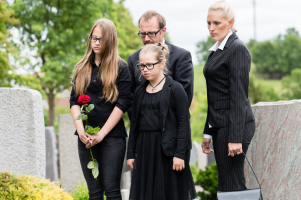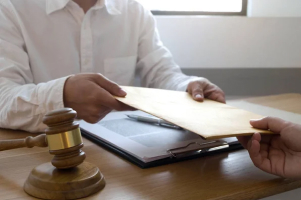
At Parker + McConkie, we understand the profound impact that the untimely death of a loved one can have on your life. In such challenging times, you need a compassionate legal team who can guide you through your legal options and advocate for your rights. In certain circumstances, a wrongful death claim may be pursued to secure justice and compensation for losing your loved one. It is crucial to understand who may be eligible to sue for wrongful death and provide insights into such a claim’s process and potential outcomes.
Wrongful death lawsuits and wrongful death claims can be complicated, but our team’s experienced wrongful death lawyer will guide you through every step of your wrongful death suit. Learn more about how we can help you below, and reach out to us to schedule a free initial case consultation.
Table of Contents

Wrongful death cases are tragically common and can arise from a multitude of circumstances, each with its unique complexities. Several types of accidents could result in wrongful death suits:
At Parker + McConkie, we bring our extensive experience and knowledge of wrongful death statutes to bear, ensuring the rights of the deceased and their loved ones are vigorously defended.

A wrongful death lawsuit revolves around certain key elements, each of which must be satisfactorily proven for a successful claim. These elements give the case its structure and form the basis for the legal arguments to be made:
The burden of proof in a wrongful death lawsuit lies with the plaintiff (the one filing the lawsuit). Each of these elements must be established to the court’s satisfaction. This task demands a deep comprehension of the law, detailed preparation, and compelling presentation of the evidence. The experienced attorneys at Parker + McConkie can guide you through this complex process, working tirelessly to build a robust case and fight for the justice you deserve.
A variety of individuals or entities may be held liable for wrongful death, including individuals, companies, government agencies, or employees. The potential defendant(s) often depends on who was responsible for the death and the circumstances surrounding the case.

The right to file a wrongful death lawsuit is typically restricted to a representative of the decedent’s estate, acting on behalf of surviving family members who have a direct interest in the case. However, laws can vary by state, so discussing with an experienced wrongful death attorney is crucial. Generally, those who can sue include:
Given the shared financial and emotional ties, a surviving spouse often has the most direct claim in a wrongful death lawsuit.
Surviving minor children may sue for the loss of parental guidance and financial support. Depending on the jurisdiction and circumstances, adult children may also have a claim.
The parents of minor children can typically sue for wrongful death. The parents of adult children may also be able to sue, particularly if they are financially dependent on their child.
In some cases, siblings may be eligible to file a wrongful death claim, specifically if they were financially or otherwise reliant on the departed.
Extended family members like grandparents or legal guardians may also have the right to sue if they were caretakers of the deceased.
Those financially dependent on the deceased, even if not related by blood or marriage, may be eligible to file a claim in some jurisdictions.
In certain states, a domestic partner of the deceased may have the right to bring a wrongful death action.
Depending on the state laws, a life partner may be able to bring a wrongful death claim.
Individuals who were financially reliant on the deceased, even if they’re not directly related, might be able to sue for wrongful death.
In some states, a putative spouse (a person who had a good faith belief that they were married to the deceased) may have the right to file a wrongful death claim.
The process of filing a wrongful death lawsuit normally commences with a thorough investigation of the death and consultation with an experienced attorney. Once the liable parties have been identified and evidence collected, a legal claim outlining the case’s details and the damages sought is filed in the appropriate court.
It’s crucial to consult with an experienced wrongful death attorney like those at Parker + McConkie to navigate the legal complexities involved and ensure the best possible outcome for your case.

The timeframe for a wrongful death settlement can vary widely depending on the intricacy of the case, the number of parties involved, the readiness of the parties to settle, and court schedules. Cases can resolve in a few months or take several years if they proceed to trial.
In a wrongful death case, the objective is to compensate for the losses associated with the untimely passing of a loved one. Various damages may be awarded depending on the case’s specifics. Here, we delve deeper into each category:
Calculating and proving these damages requires thorough legal knowledge and expertise. The dedicated team at Parker + McConkie can meticulously evaluate these factors to ensure you receive the maximum compensation you deserve in your wrongful death claim.

The loss of a loved one is an emotionally devastating experience, and the prospect of a legal battle can feel overwhelming. At Parker + McConkie, our compassionate and experienced attorneys are here to guide you through this challenging time. We are committed to securing justice for your loved one and ensuring you receive the financial compensation you deserve. Contact us today to schedule an initial consultation.



